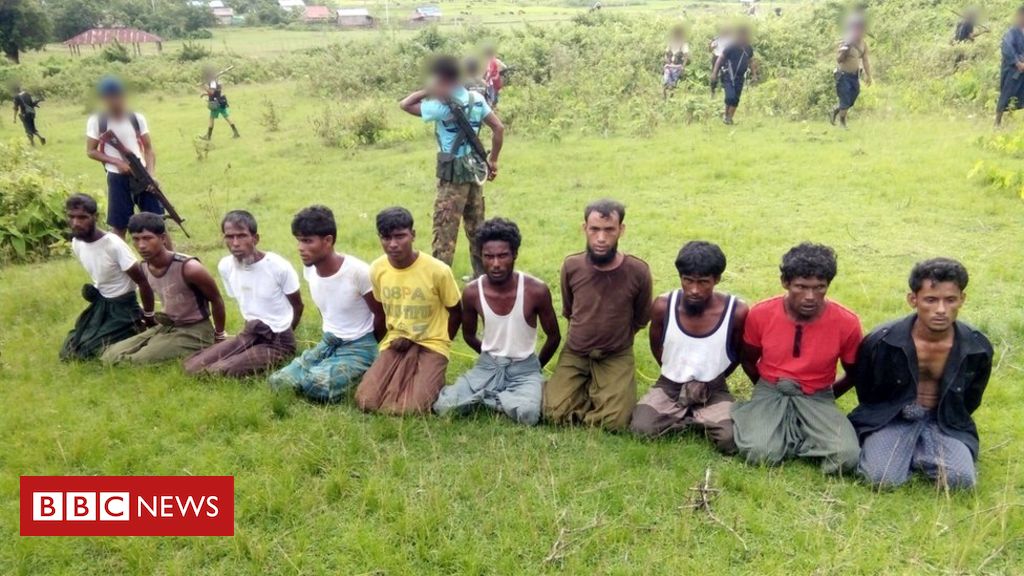 Image copyright
Image copyright
HANDOUT
These are the men whose deaths the Reuters journalists were investigating
Seven soldiers jailed in Myanmar for killing 10 Rohingya Muslim men and boys have been released early from prison.
The soldiers were sentenced in 2018 to 10 years in prison for the Inn Din village killings, but they “are no longer detained”, prison officials say.
Reuters, which uncovered the massacre and first reported the early releases, said the men were freed in November.
They are the only people to have been convicted for the 2017 crackdown on Rohingya in the western Rakhine State.
More than 700,000 people fled the country as a result of the military operation there.
On Monday, a spokesperson for the prison department told reporters that the seven soldiers convicted over the Inn Din executions were “no longer detained in our prisons,” without giving further details.
One of the soldiers confirmed to Reuters that he had been released but declined to comment further, saying: “We were told to shut up.”
Two fellow inmates told the news agency that the release came in November – less than a year into the 10-year prison term.
The journalists who exposed the massacre were sentenced to seven years in prison for their reporting.
Wa Lone and Kyaw Soe Oo were granted a presidential amnesty in May after serving 16 months.
Image copyright
Reuters
Wa Lone and Kyaw Soe Oo have now been freed along with thousands of other prisoners
Authorities launched a probe into the Inn Din killings after the journalists’ investigative work was published.
The massacre – and the jailing of the journalists investigating it – is seen by observers as indicative of the army’s role in the treatment of Rohingya in Myanmar, also known as Burma.
What was the Inn Din massacre?
The final report by Reuters gathered testimonies from a range of participants, including Buddhist villagers who confessed to killing Rohingya Muslims and torching their homes. Accounts from paramilitary police also directly implicated the military.
A group of Rohingya men seeking safety on a beach were singled out as their village was raided, the report said.
Buddhist men from the village were then ordered to dig a grave and then the 10 men were killed, at least two hacked to death by the Buddhist villagers with the rest shot by the army.
This was thought to be the first time soldiers had been implicated with photographic evidence and by fellow security personnel.
Who was jailed?
The military eventually confirmed the massacre had taken place and in April 2018, 10 soldiers were sentenced to prison for their involvement in the killings.
The soldiers were to serve 10 years of hard labour for “contributing and participating in murder”.
The two journalists were arrested before their findings were published, after being handed documents by two policemen who they had met at a restaurant for the first time.
They were charged with violating the country’s Official Secrets Act. But a police witness testified during their trial that the restaurant meeting was a set-up to entrap the men.
Aside from the Inn Din killings, the military exonerated itself of any wrongdoing in Rakhine, despite large amounts of testimony from Rohingya refugees describing atrocities.
